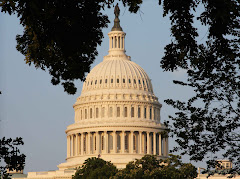In the months since Barack Obama assumed the Presidency, the public mood has sent a series of hopeful signals to the GOP. Obama's victory in securing the passage of landmark healthcare legislation has failed to provide him with a substantial polling bounce, the environmental tragedy in the Gulf Of Mexico showcased the federal government's initial lethargic response effort, and less than half of those now surveyed say they approve of the job Obama is doing as President.
A heavenly alignment of stars for Republicans, right?
Well, not exactly.
Surprise, surprise.
Instead of capitalizing on this turn of events, Republicans are dropping the ball, at least for now.
The Republican response to Obama's difficulties-their lack of new ideas, their stubborn refusal to vote to extend unemployment benefits until a newly-seated U.S. Senator made their opposition moot, their unapolegetic obstructionism, and an internal Civil War within their ranks, may well conspire collectively to snatch defeat from the jaws of victory.
The national Tea Party movement poses a genuine threat to the Republican Party.
While many Conservative strategists would like to see the GOP co-opt the Movement, it is becoming increasingly clear that the Movement may co-opt the GOP. Time and time again, the Tea Party and its activists have placed an ideological purity test on Republican candidates running in primaries all across the country. These activists are working tirelessly to ensure that only those candidates they deem to be legitimate conservatives win primary contest nominations.
From Rand Paul's primary victory in Kentucky to Bob Bennett's failure to secure renomination in Utah, the Tea Party has made it clear that it is not afraid to weigh in on U.S. Senate primary contests across the land.
Only time will tell whether the Tea Party is merely a flash in the pan, or in fact, the new face of the Republican Party.
Wednesday, July 28, 2010
Subscribe to:
Post Comments (Atom)




No comments:
Post a Comment